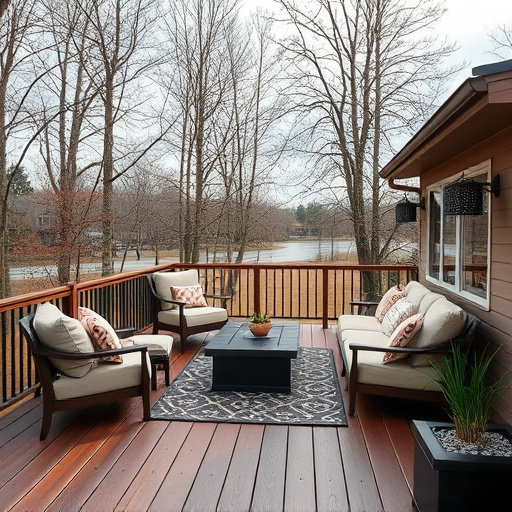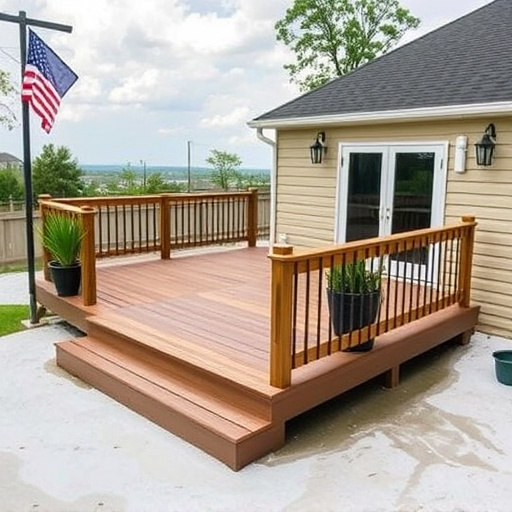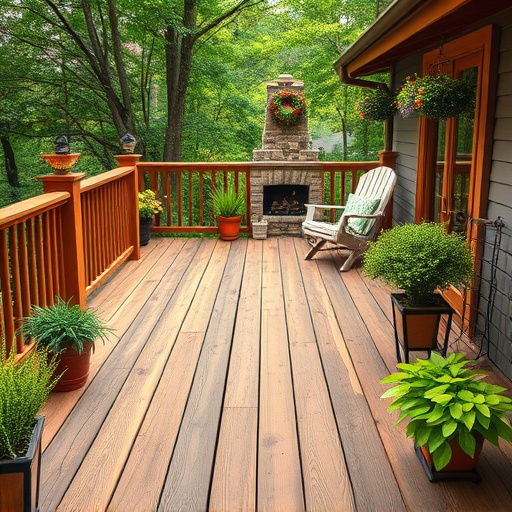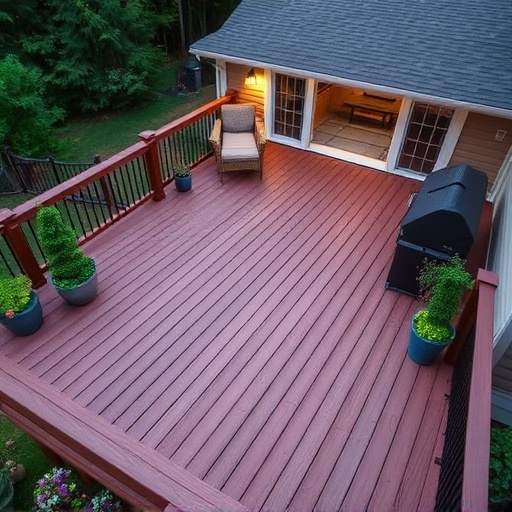Choosing sustainable deck boards made from recycled plastic, composite materials, or bamboo reduces environmental impact by conserving resources, minimizing chemical emissions, and preserving forests. Opting for locally sourced, durable options lowers transportation emissions, maintenance costs, and waste, providing long-lasting performance and enhancing outdoor spaces without frequent repairs. Construction professionals can drive industry sustainability by advocating and specifying eco-friendly deck boards.
Choosing sustainable deck boards is a significant step towards creating an eco-friendly outdoor space. This guide will help you navigate the options, ensuring your new or renovated deck contributes to a greener planet. We’ll delve into the environmental impact of deck boards and explore key factors like material composition, life cycle assessment, and local sourcing. By the end, you’ll be equipped to select the best sustainable deck board materials for your project.
- Understanding Deck Boards and Their Impact on Sustainability
- Key Factors to Consider When Choosing Eco-Friendly Deck Materials
- Exploring Popular Sustainable Options for Deck Boards
Understanding Deck Boards and Their Impact on Sustainability
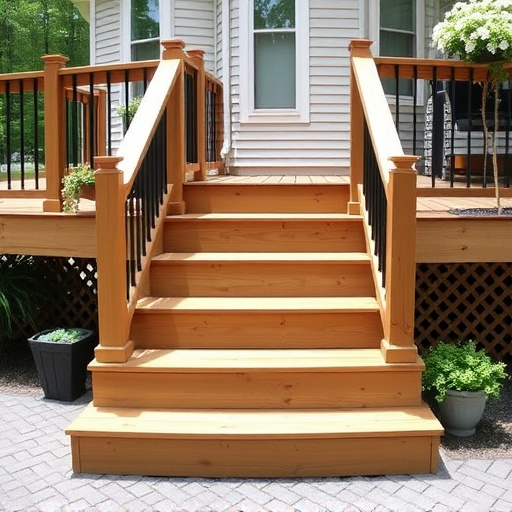
Deck boards are a crucial component in constructing and maintaining outdoor living spaces, offering both structural support and aesthetic appeal. However, their impact on sustainability is an increasingly important consideration for homeowners and professionals alike. Traditional deck boards often rely on non-renewable resources and contribute to environmental degradation due to manufacturing processes and disposal. As such, understanding the materials used in deck board construction is a key step towards making more sustainable choices.
Choosing eco-friendly deck boards can significantly reduce a project’s carbon footprint. Options like recycled plastic or composite materials offer durable alternatives to conventional wood, minimizing the demand for deforestation and reducing chemical emissions associated with wood treatment. For residential siding or roofing and siding projects, these sustainable options not only contribute to environmental preservation but also provide long-lasting performance, ensuring lower maintenance costs and reduced waste over time. Professionals in the construction industry can play a vital role by advocating for and specifying sustainable deck boards, thereby driving a trend towards more eco-conscious practices.
Key Factors to Consider When Choosing Eco-Friendly Deck Materials
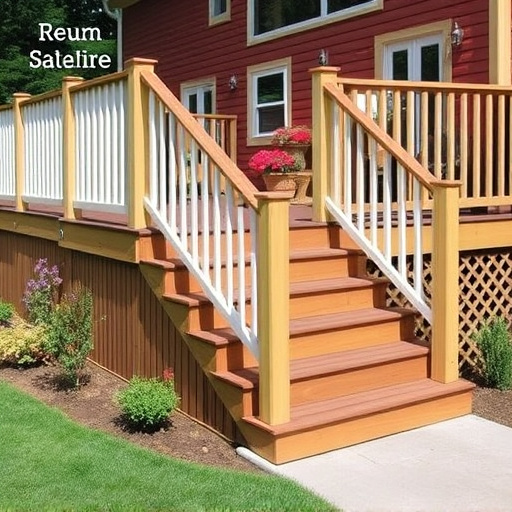
When selecting sustainable deck boards, several key factors come into play. Firstly, consider the material’s origin and production process. Opt for locally sourced materials whenever possible to reduce transportation emissions. Look for decking options made from recycled content, such as reclaimed wood or plastic composite materials, which minimize the demand for new resources.
Additionally, durability is a critical aspect. Choose deck boards that are resistant to rot, decay, and insects to extend their lifespan and reduce replacement needs. This not only saves you money but also minimizes waste. Remember, the goal is to find decking solutions that offer both environmental benefits and long-lasting performance, ensuring your outdoor space is both eco-friendly and aesthetically pleasing, without requiring frequent roof consulting or home service solutions for repairs.
Exploring Popular Sustainable Options for Deck Boards
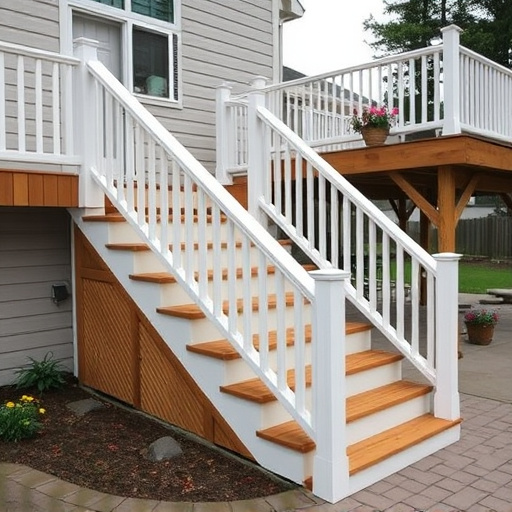
When exploring sustainable deck board options, homeowners have a growing array of eco-friendly choices beyond traditional wood. Popular materials include recycled plastic, composite materials, and bamboo. Each has unique properties that make it attractive for different needs. For instance, recycled plastic boards are known for their durability and resistance to rot, making them ideal for areas prone to moisture. Composite deck boards, on the other hand, offer a wide range of colors and styles, allowing for more design flexibility while still maintaining low maintenance requirements.
Bamboo, a rapidly renewable resource, is another popular choice. It’s strong, versatile, and has a distinct natural aesthetic. While bamboo may not be as durable as some composite or plastic options in terms of siding repairs or replacement over time, its lower environmental impact makes it an appealing choice for environmentally conscious homeowners looking to minimize their carbon footprint. These materials not only contribute to a greener environment but also offer long-term savings through reduced maintenance and longevity, ensuring your deck remains beautiful without frequent siding services.
When selecting deck boards, prioritizing sustainability ensures a greener impact on the environment. By understanding material sources and production methods, you can make informed choices that contribute to eco-friendly outdoor living. Consider the key factors outlined in this article, explore popular sustainable options, and embrace a more responsible approach to decking. Every conscious decision brings us closer to a more sustainable future, one deck board at a time.








